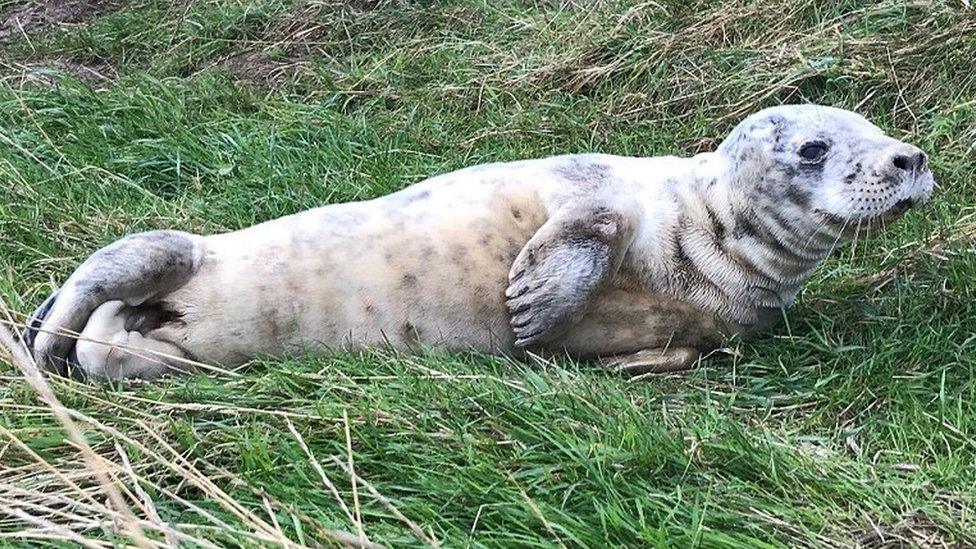Helping 'abandoned' seals could harm them, warns expert
- Published
Noel was left by his mother and "didn't get the whole independence thing"
There has been a surge in seal pup rescues this year, as more people visit Welsh beaches during the pandemic, according to a marine conservationist.
Frankie Hobro, who owns and runs Anglesey Sea Zoo, said she had dealt with seals attacked by dogs, and others mistakenly thought to be abandoned.
Along with staff and volunteers, she has spent December caring for two seal pups - Ranger and Noel.
Ranger has just been released, while Noel is now at a special RSPCA centre.
"Interaction between seals - pups especially - and humans seems to becoming more and more common, locally here on beaches," said Ms Hobro.
"I don't think people realise just how common it is to see one, especially grey seals in north Wales."
The period between October and the end of December is the prime time for seal pups to make their presence known, following a late summer breeding season.
But as more people have rediscovered the outdoors following lockdowns in Wales, it is now leading to problems.
"This year we have had a particularly large demand for rescuing grey seal pups found on beaches all over north Wales," said the zoo owner.
"All the RSPCA rescue centres have been at full capacity for several weeks now."

Ranger and Noel
Two different tales for two very different seals.
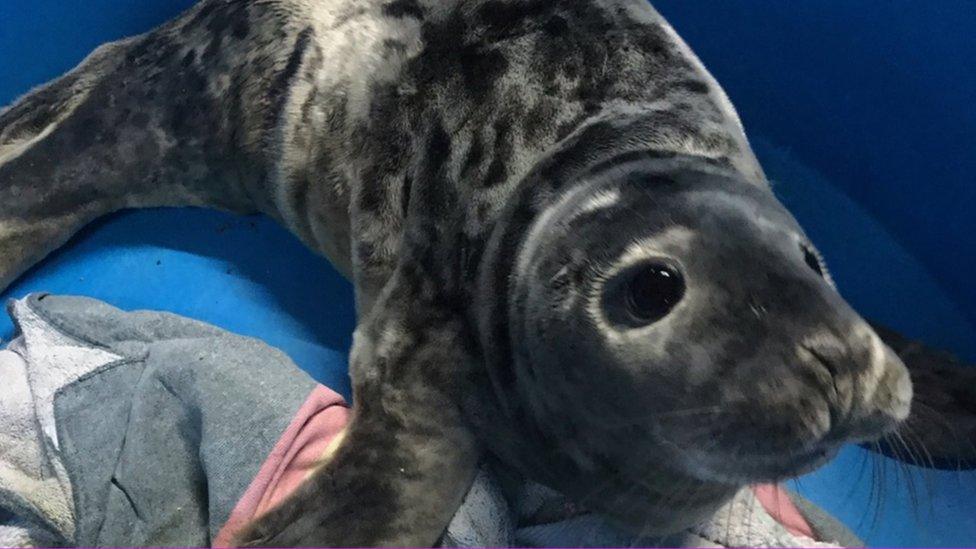
Ranger was badly bitten by a dog when he turned up at Anglesey Sea Zoo
Ranger is a mature seal pup who was brought in to Anglesey Sea Zoo on the shores of the Menai Strait at Brynsiencyn after being badly bitten by a dog.
He had several puncture wounds on his body, and had a mild chest infection too.
But after a week-long stay at what has become known as the "Sea Zoo Seal Spa", some antibiotics and a good feed, he was ready to return to the sea.
"He was definitely ready to go back into the wild, as he clearly hated being contained and fed by us once he was fully recovered," said Ms Hobro.
"It was a wonderful moment to watch Ranger swim out to join the other seals out at sea near the Little Orme.
"Although he did take a little coaxing initially to take to the waves, once he swam off he didn't look back."

Ranger returns: The seal pup was released fighting fit near Llandudno
It will be a little while longer before younger pup Noel is back in the water.
"He was a pup who had been left by mum, but had never gone off on his own to get food, so he was very, very underweight," said Ms Hobro.
"He clearly didn't get the whole independence thing and probably hadn't eaten for a week or more."
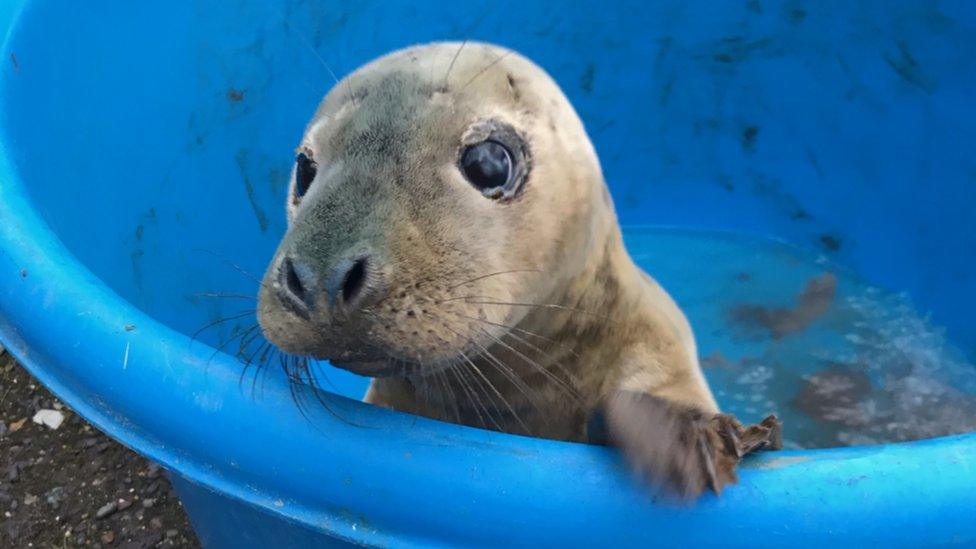
Seal pup Noel spent almost three weeks being cared for on Anglesey
He stayed at the zoo for nearly three weeks, being fed and taught how to feed himself.
This week, a space finally became available at the RSPCA's specialist wildlife centre at Stapley Grange in Nantwich, Cheshire.
Noel will be in a pool with other rescued seals and he will continue to be rehabilitated before being released back into the wild in the new year.
"The most important thing for him is to be with other pups of a similar age because he hasn't gone through that process of becoming independent."
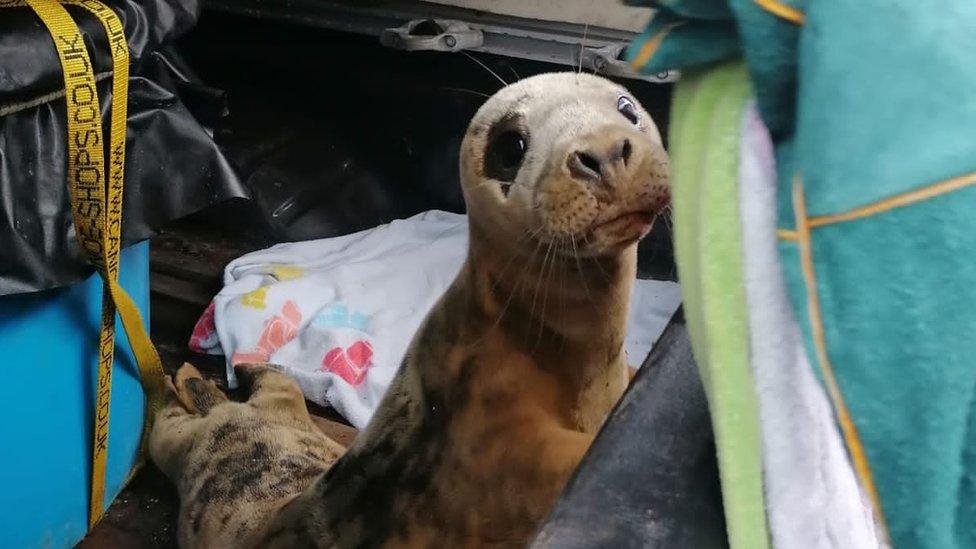
Ready for the road: Noel has now been taken to Cheshire for further rehabilitation

Ms Hobro said there were two main issues that needed tackling.
"We are particularly concerned that dog owners who walk their dogs off the lead on beaches need to be aware," she said.
"The smell of a seal intrigues dogs, and pups on beaches will often lie very still until approached so closely that they have to bite to defend themselves.
"An altercation between a seal pup and a dog could easily result in as much damage to the dog as to the seal pup, as seal bites are particularly prone to result in nasty infections."
Sadly, one seal pup brought to the sea zoo recently had been so badly injured by a dog, it could not be saved.
"We are asking the public if they are walking their dogs on an area of beach where seals are normally present, to please keep them on a lead or keep a close eye on them when they are off the lead, and pay attention to wildlife signs and any unusual behaviour," added Ms Hasbro.
Another issue is becoming a common mistake - concerned members of the public trying to help seal pups they think have been abandoned.
In fact, pups are often left alone on beaches while their mothers search for food.
If someone then approaches the pup, it will not only become stressed, its mother will not come back onto the beach while other people are around.
"We are requesting that members of the public avoid approaching any seal that they find on the beach, observe it from a distance and report it quickly if they are concerned about its welfare," said Ms Hobro.
"While meaning well, many people get too close and this leads to further distress for the animal, and may result in a pup having to be rescued when it may otherwise have been OK."
The zoo owner's best advice is to call for help, and contact experts such as the British Divers Marine Life Rescue charity, external.
- Published2 January 2019
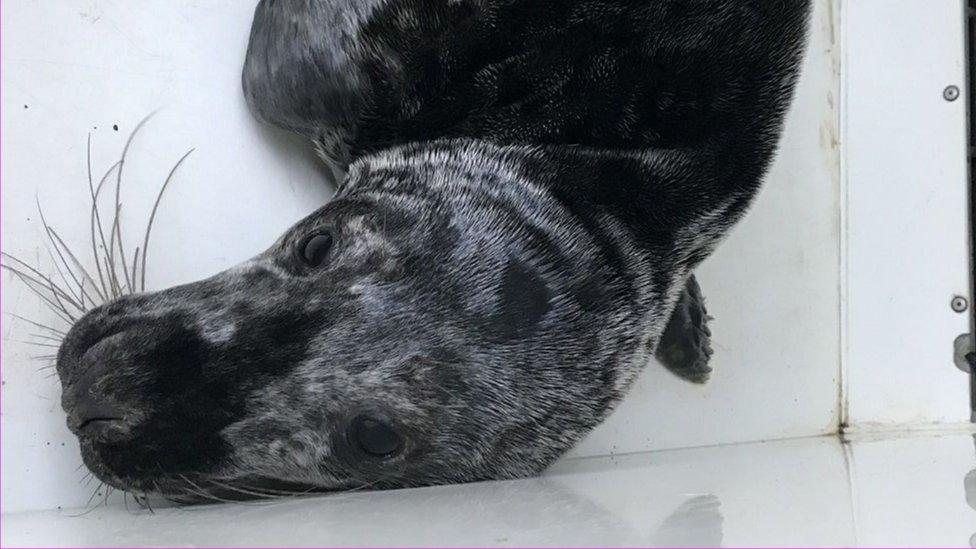
- Published2 October 2019
